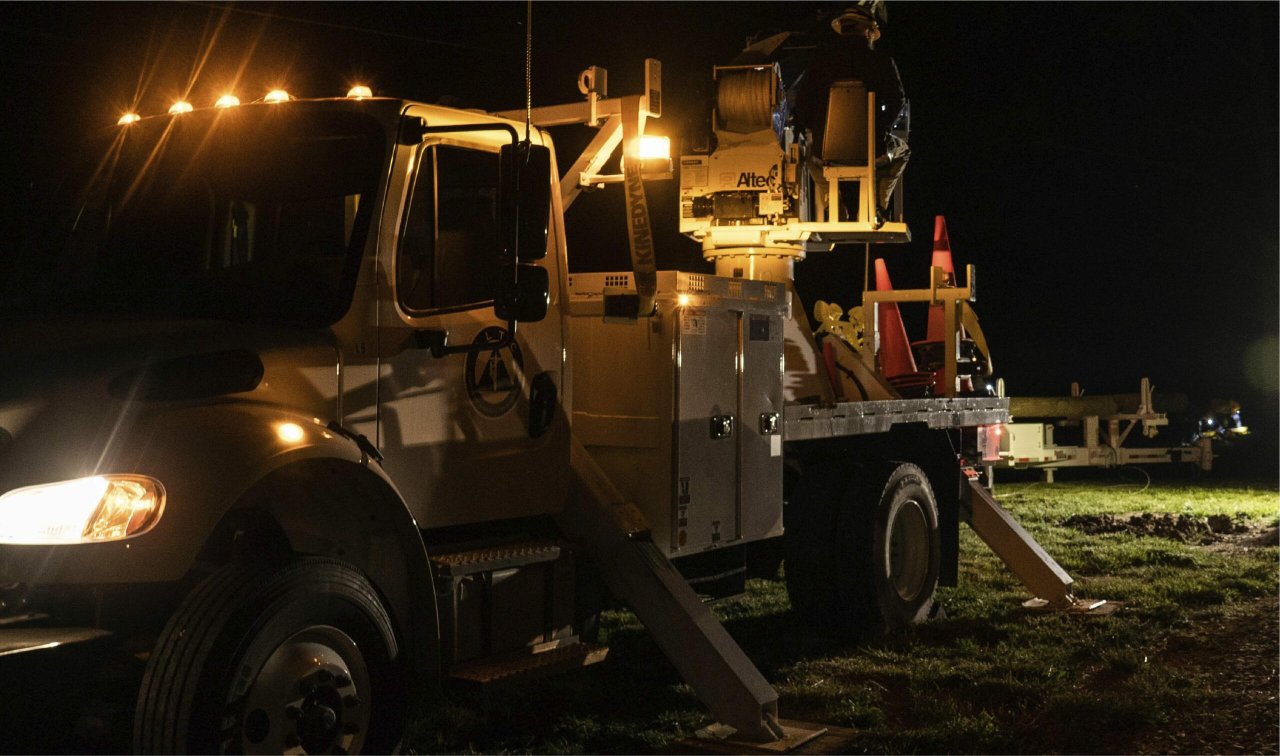
June 11th, 2025

In 2020, hurricanes Laura and Delta decimated Louisiana and the surrounding areas. The two storms combined for an estimated 20 billion dollars in damage and a death toll of nearly 50 people. Delta hit less than 15 miles from where Laura made landfall only a few short weeks later, creating a dire situation for the state of Louisiana. This year, an abnormal ice storm swept across the state of Texas leaving millions without power. The Texas State Health Department recorded over 100 fatalities. Hypothermia and carbon monoxide poisoning were the main culprits of the fatalities, both caused by the power outages.
While firefighters, police officers, and EMTs do all they can to rescue and save those in life threatening situations, linemen are the only ones who can save those suffering from power outages and its repercussions. According to Edison Electric Institute, more than 29,000 linemen from all over the United States and Canada rushed in to help Louisiana. These heroes risked their own lives and worked exorbitantly long hours to help save the lives of those afflicted.
A lineman working a storm encounters many challenges. They may have to navigate unsafe driving conditions including flooding or damaged roads. There is also a risk of serious injury, such as burns or electrocution from the damaged infrastructure. They commonly work 13+ hour days, which creates stress and fatigue, especially under the intense working conditions. It is a massive sacrifice to take these risks and be away from their families for extended periods of time. Linemen made such a profound impact in Louisiana that Sen. John Kennedy (R-La.) proposed the Lineman Legacy Act, which would make utility lineworkers listed among other emergency response providers according to the Homeland Security Act of 2002.
The senator had this to say, “We saw the work utility linemen did to repair Louisiana’s electrical grid after Hurricanes Laura and Delta hit our state, and we’re seeing these servants back in action sooner than we thought. As ice storms fell on our state and took lines down with them, linemen were often first on the scene to make neighborhoods safe again. They save homes, businesses and lives. Simply put, linemen are first responders, so my bill would legally add utility line technicians to Homeland Security’s list of first-responder occupations. I hope my colleagues join me in giving these heroes the recognition they deserve by moving this bill forward”.
As the storms continue to rage and sweep across the globe, we hope that linemen will continue to be recognized for the hard work and sacrifice they make to save lives and keep the power on. Next time you flip on a light, plug in your phone, or turn on your fan on a hot summer day, think of the many linemen who helped make it possible.
Now that hurricane season is here, being prepared is the most important priority for safety. If you want to know about how you can prepare yourself for a hurricane click here.
If you want to follow the progress of the bill you can do so here.
Southeast Lineman Training Center (SLTC) is the premier training school for lineworker training; consistently producing an elite group of highly trained and certified graduates.